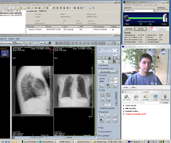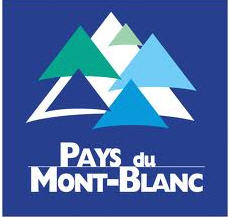Better Access To Healthcare Is Not Just For Emerging Markets — Just Ask Me
 In addition to the eHealth initiatives mentioned in my previous blog, I wanted to call out another T-city program that struck close to home for me — the “tumor conference program.” The idea is simple, but the impact is enormous. The program’s official objective is to “make possible the interdisciplinary exchange of experiences between doctors, therapists, and cancer specialists, and to support the process flow of a tumor conference by using a modern communications solution.” But for many patients, the objective is more than “process flow,” it is about universal access to healthcare and access to specialists in the fields they need — in this case, access to the cancer specialists that are affiliated with research centers and university hospitals. These conferences are vital to extending access beyond just the big cities to the smaller towns and rural areas. And we’re not talking about Africa or India — we’re talking about Europe, and developed countries on other continents.
In addition to the eHealth initiatives mentioned in my previous blog, I wanted to call out another T-city program that struck close to home for me — the “tumor conference program.” The idea is simple, but the impact is enormous. The program’s official objective is to “make possible the interdisciplinary exchange of experiences between doctors, therapists, and cancer specialists, and to support the process flow of a tumor conference by using a modern communications solution.” But for many patients, the objective is more than “process flow,” it is about universal access to healthcare and access to specialists in the fields they need — in this case, access to the cancer specialists that are affiliated with research centers and university hospitals. These conferences are vital to extending access beyond just the big cities to the smaller towns and rural areas. And we’re not talking about Africa or India — we’re talking about Europe, and developed countries on other continents.
 As some of you might know, I am on medical leave for the next few months (although I’m still working — a little). I was diagnosed with breast cancer at the end of January but am doing fine. I am extremely grateful to have access to excellent healthcare. I live in a small village in the mountains in France. While there is no cancer research center or university hospital near me, I was not concerned about getting the care I needed close to home. My family, both in the US and in a larger city in France, questioned whether I should travel to get better care. Would I be more comfortable being treated back at Stanford or UCSF in California? Or traveling to one of the regional university hospitals or cancer research centers in France? But no, I didn’t need to do that.
As some of you might know, I am on medical leave for the next few months (although I’m still working — a little). I was diagnosed with breast cancer at the end of January but am doing fine. I am extremely grateful to have access to excellent healthcare. I live in a small village in the mountains in France. While there is no cancer research center or university hospital near me, I was not concerned about getting the care I needed close to home. My family, both in the US and in a larger city in France, questioned whether I should travel to get better care. Would I be more comfortable being treated back at Stanford or UCSF in California? Or traveling to one of the regional university hospitals or cancer research centers in France? But no, I didn’t need to do that.
I have a great healthcare team: my generalist here in my village, my gynecological surgeon in the town down the mountain, and the oncology specialists at the regional cancer center in Lyon. I benefit from the regional oncology network in France, a system for collaboration around cancer treatment. Improved and better-coordinated cancer care and policy became the responsibility of the National Cancer Institute when it was created in 2004, a goal renewed in the second French National Cancer Plan (2009-2013). In practice, this coordination means that a council of healthcare providers reviews the record of each cancer patient in the region. The latest research and practices are shared and decisions are made collaboratively. That type of collaboration means that patients don’t need to leave their homes and families to get the specialist care they need. And new technology — like the tumor conference solution piloted in Friedrichshafen — enhances this collaboration.
Bottom line: Improved access to healthcare is not just for emerging markets. Collaboration and “tumor conferences” benefit patients in any region. Just ask me.